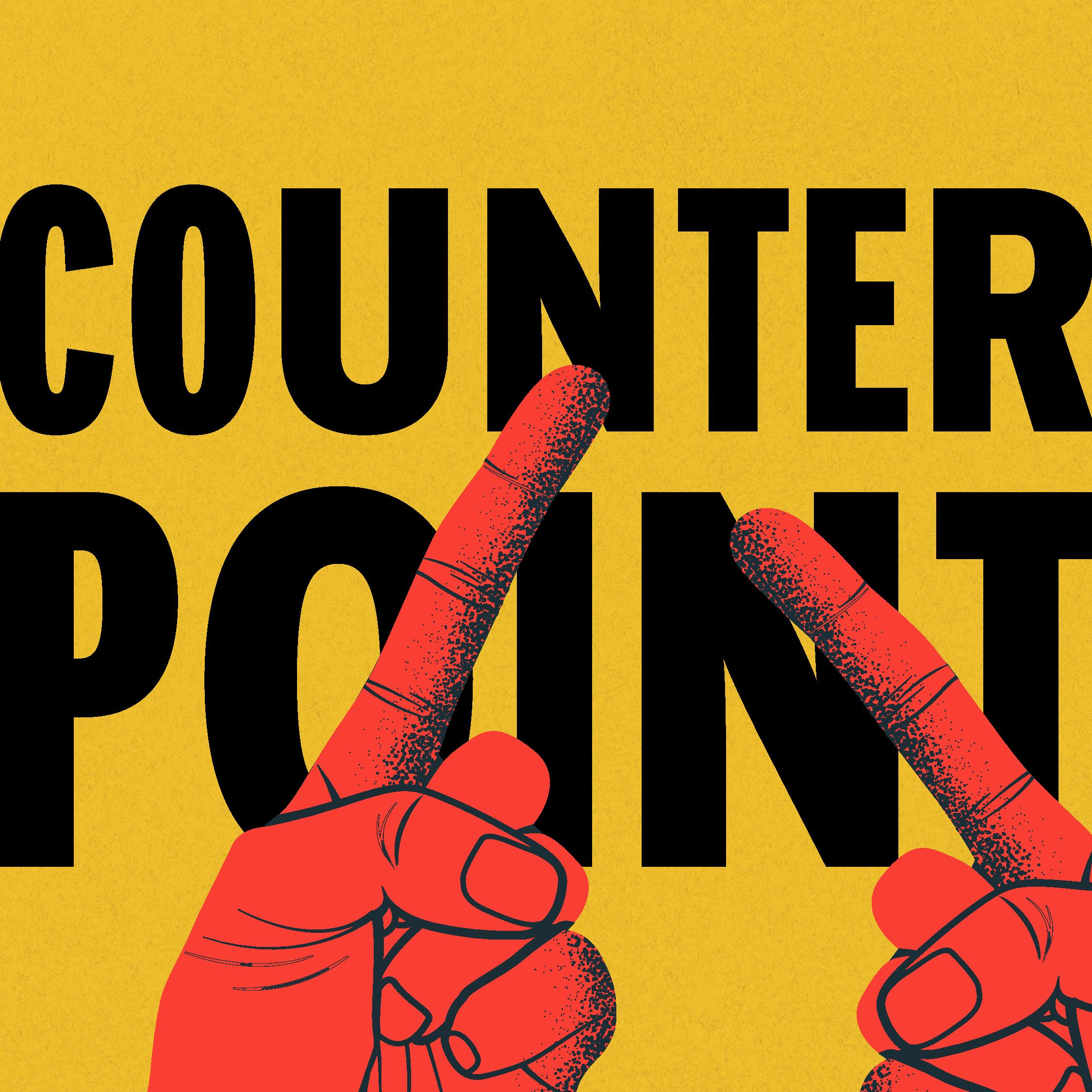

Counterpoint
Foreign Policy
Every day, experts from around the globe present their arguments for solving the world’s biggest problems. And every day, these experts disagree in small and large ways. At Foreign Policy, our approach is to share a wide range of opinions, side by side, day by day. But what if people could hear those arguments tested, in real time, under pressure from an opposing view–by an international cast of diplomats, journalists, academics and activists?That’s the idea behind Counterpoint, a new debate show from Foreign Policy, in partnership with the Doha Forum.Join FP deputy editor Sasha Polakow-Suransky and his guests, including anti-Brexit campaigner Gina Miller, Britain’s former chancellor Kwasi Kwarteng, South African author Sisonke Msimang, veteran Middle East peace negotiator Dennis Ross—and many more.
Episodes
Mentioned books

Dec 15, 2023 • 29min
Remaking the World Order
Exploring the future of multilateralism and the role of the United States. The concept of 'co-opetition' in geopolitics. The complex dynamics of middle countries and proxy wars. The role of multilateral organizations in addressing global crises.

Dec 8, 2023 • 31min
Engaging With the Global South
C. Raja Mohan, Senior fellow with the Asia Society Policy Institute in New Delhi, discusses how to reengage with the global south and whether the term is relevant today. The podcast explores the resurgence of the global south, power dynamics, the rise of mini-laterals, inequities in financing, and strategies for developing a shared agenda between the North and South.

Dec 1, 2023 • 32min
A New Approach to Preserving Ocean Biodiversity
Monica Medina, President and CEO of Wildlife Conservation Society and former US Special Envoy for Biodiversity and Water Resources, discusses the challenges facing ocean biodiversity including pollution, overfishing, and climate impacts. The podcast explores the role of oceans in protecting biodiversity and combating climate change, the impact of world events on policymaking, the importance of the High Seas Treaty, and the significance of ocean conservation for the US economy and climate.

Nov 17, 2023 • 39min
What Would It Take to Solve the World’s Refugee Crisis?
Explore the causes and challenges of the world's refugee crisis, including conflicts, climate crisis, and political instability. Learn about the UNHCR's response to a major earthquake in Country X and the complex nature of refugee movements. Discover the importance of long-term resilience and finding solutions for those unable to return home. Hear stories of hope and resilience from people affected by conflict and displacement.

Nov 10, 2023 • 26min
How to Regulate Artificial Intelligence
The podcast discusses the European Union's AI Act, the benefits and concerns of regulating artificial intelligence, Brussels's leading role in global conversations on technology regulation, the challenge of older leaders understanding AI, and the difficulty of planning for the future amidst multiple crises.

Nov 3, 2023 • 27min
How to Fix America’s China Policy
Rep. Andy Kim calls for a foreign policy focused on coalition building in US-China relations. Importance of comprehensive approach, boosting America's strength, and investing in talent pool. Significance of diplomatic engagement with China and proposal for more diplomacy. Persistence and open dialogue crucial in international relations.

Oct 27, 2023 • 34min
Rebooting the Patriarchy
Science journalist Angela Saini discusses her book 'The Patriarchs: The Origins of Inequality' and how to reset gender norms. Topics include the role of size and physical strength in male domination, gender dynamics in India, revolution vs reform in challenging the patriarchy, unpaid labor, and the origins of patriarchy throughout history.

Oct 27, 2023 • 30min
How to Rethink Poverty
Rory Stewart, a longtime administrator of foreign aid and president of GiveDirectly, discusses the effectiveness of direct cash transfers in alleviating poverty. He highlights the importance of coordination with other aid programs and the positive impact of empowering those in extreme poverty. The podcast also explores challenges in international development aid and proposes allocating half of the budget for cash transfers to eradicate poverty.

Oct 20, 2023 • 2min
A New Season of Global Reboot
Global Reboot returns for a new season. Join host and Foreign Policy editor in chief Ravi Agrawal as he talks with top policymakers and thinkers focused on solving the world’s biggest problems. New episodes drop every week starting on Oct. 27.Global Reboot is produced in partnership with the Doha Forum. Learn more about your ad choices. Visit megaphone.fm/adchoices

Aug 22, 2023 • 41min
Doha Debates Podcast
The Doha Debates Podcast discusses the challenges of debt in developing countries and the impact of debt burden on essential investments. They explore the issue of debt relief, tax avoidance, trade deals, and the role of domestic lenders in accumulating debt. The podcast also discusses the perception of risk in investing in emerging markets and the need for responsible fiscal management. Debt cancellation and global south responsibility are emphasized as important solutions.


